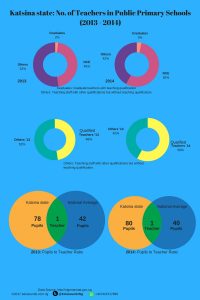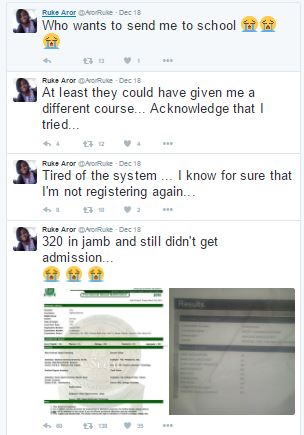In a week that the New Yorker magazine covered a story on the Brazilian literary icon,Raduan Nassar, on his decision to abandon the literary world for the world of farming to much debates in Brazil since then; it was interesting to see such a scenario repeating itself in a different context in Nigeria, when the governor of Osun state was reported in the mainstream media to have made a statement at the graduation ceremony speech of Fountain University that he delivered, saying that – the graduands should forget their university certificates and go back to farm. There was a storm of reaction over the statement. Browsing through a Nairaland page on the statement, it was obvious that people reacted differently to the statement of the governor.
Without having access to the governor’s speech, it is hard to make a constructive criticism of the said statement. However, the statement raises a fundamental issue on the vocationalisation of education in Nigeria (PDF) . There is nothing wrong or demeaning in acquiring vocational skills or engaging in vocational education, but the statement attributed to the governor shows a fundamental shift from Nigeria’s philosophy of education and leaves Yusef Waghid’s African philosophy of education aspirations in a state of coma.
Whilst it sounds very logical to assume that vocational skills acquisition will help to reduce the level of unemployment in the country, it is more important to understand the plausibility of such an educational proposition and its potential long term effects on the nation.
A fundamental issue with the vocationalisation of education in any country is that – it could potentially lead to an hour glass economy system (PDF) where majority of the citizens will be left at the bottom end of the economy doing basic jobs whose existence are continuously being threatened by advancements in technology and another majority at the top end of the economy as company executives and employers of labour, whilst the mid-income level jobs that create most wealth in any nation that aspires to achieve a universal wealth growth and distribution will be almost non-existent.

The hour glass economy scenario portends negative outcomes for issues like social justice and social mobility in the country. It means it would be hard to have people of modest backgrounds rising to the top of their professions in the country and it could eventually create a society of deeply entrenched socio-economic class system.
The challenge such an economic scenario will pose to a developing nation like Nigeria is that, the country will not be able to train enough skilled personnel in fields of high needs like: medicine, engineering, education, science and technology, economics, business and arts. Although, it is easy to question the significance and relevance of these fields to the present day Nigeria, however, a good case study was when the *GSM technology was fully integrated into the Nigerian telecommunications system (PDF) and how it significantly impacted on the country’s economy (PDF) to the extent that the government even considered to tax service users over their usage of services provided through this means of technology. The question is – how will a country like Nigeria be able to favourably compete with: developed economies like – US, Australia, Japan, Germany, UK and economies like that of – China and India, South Africa and the Gulf states, for skilled personnel in these fields?
Without having a constant supply of locally trained workforce for most of these mid-level professions, how is it going to be feasible and sustainable to survive the age of internet of things in Nigeria? Going back to the governor’s speech, a review of the first chapter of the seminal book History of Education in Nigeria (1974) by Late Professor A. Babs Fafunwa (PDF) becomes relevant to the discourse on farming and education. In the book’s first chapter ‘Traditional African Education’, the author talked about the educational settings in a traditional African society during the pre-colonial era (PDF); through the prism of the practise of a particular ethnic group in pre-colonial Nigeria.
Fafunwa defined education as:
The aggregate of all the processes by which a child or young adult develops the abilities, attitudes and other forms of behaviour which are of positive value to the society in which he lives; that is to say, it is a process for transmitting culture in terms of continuity and growth and for disseminating knowledge either to ensure social control or to guarantee rational direction of the society or both.
This philosophy of education that he expounded is similar to the education theory of Lave & Wenger (1991) that “learning is a social process whereby knowledge is co-constructed and is situated in a specific context and embedded within a particular social and physical environment.”
Fafunwa, saw education from a behaviourist perspective (PDF) and believed that the essence of education is first and foremost enculturation and in a similar light Jerome Bruner in the preface of his book The Culture of Education alluded to a similar position when he said “What we resolve to do in school only makes sense when considered in the broader context of what the society intends to accomplish through its educational investment in the young.”
To Fafunwa, education was a means of social control, this position he further emphasised when he said “African society regarded education as a means to an end…Education was generally for an immediate induction into society and a preparation for adulthood. In particular, African education emphasised social responsibility, job orientation, political participation and spiritual and moral values.”
In expanding on his theory and practice of traditional African education, he talked about children and adults engaging in participatory education and in order to establish how this learning theory was implemented, he talked about people engaging in “ceremonies, rituals, initiation, recitation and demonstration.” Likewise, for intellectual stimulation (PDF) in the system, he said people were engaged in “the study of local history, legends, the environment (local geography, plants and animals), poetry, reasoning, riddles, proverbs, story-telling, and story-relays.”
Education to Fafunwa in this traditional setting was also practical, in that – the people were engaged in different physical activities like “practical farming, fishing, weaving, cooking, carving, knitting, and so on.” He rounded up the process of educating people in the setting by saying that “At the end of each stage, demarcated either by age level or years of exposure, the child was given a practical test relevant to his experience and level of development and in terms of the job to be done.” This he said “was a continuous assessment which eventually culminated in a passing out’ ceremony, or initiation into adulthood.”
He talked extensively about the different informal educational practices amongst the Yoruba ethnic group in the present day South-west region of Nigeria, citing their oral traditions like: Oriki (praises) and Ijala (an oral poetry by Yoruba hunters). With respect to numeracy, he talked about the number and measurement systems in the Yoruba language (PDF) . Also, he made mention of the different games in the cultural practices of this group of people and how these games promoted mathematical skills acquisition in the areas of “addition, subtraction, multiplication, division, geometry, combinations, and the properties of numbers.”
On science education, he used the examples of how “the appearance of certain butterflies in the area was an indication that the rainy season was approaching…Planting of some other crops was patterned on the appearance of new leaves on certain types of trees. The immigration of some birds indicated the beginning of a certain season.”
He also talked about teamwork and gender equality. Teamwork according to him was important and to this effect he said “At a certain stage in the lives of the boys, age-grouping became predominantly important…”
On gender equality, he said:
Girls were also apprenticed to certain trades, the only difference between them and the boys being that they were apprenticed to mistresses instead of masters. According to some informed sources, however, there were certain trades in which both men and women participated on equal terms but there were minorities who held the opinion that there were no trades in which both the men and women could not participate on equal terms. The trades where it was possible for both men and women were farming and weaving…From the information collected it was obvious that the women also practised some sort of farming but this was not on such a large scale as men. But in the weaving industry, the women did as excellent a job as men. The only difference was in the setting up of the weaving apparatus. For instance, the women used long shuttles while the men used short shuttles. The men wove in parallel position and women in vertical position…
On business education, he said “similarly, trading was an open door occupation, and every Ojo and Aina (these are traditional Yoruba names) participated in it on equal terms regardless of any family ties or qualifications.”
If in the years gone by, the traditional system of education was this robust; how feasible is it today, that the best way to educate a nation of over 180 Million people is going to be by focusing on “farming”?
*GSM – is used here to represent any means of electronic communication in Nigeria post 1999.
A review of the History of Education in Nigeria was first published by the author online as indigenous education on www.educationalpathways.wordpress.com (to be discontinued). The article has been edited for the purpose of this publication.
Please, leave your thoughts on this post in the comment section and feel free to share the article with your contacts. Thanks for taking out of your precious time to read my article/s!
If you like this post, kindly subscribe and/or follow me on Twitter @otukogbe and @EusoundsNg or on Facebook at www.facebook.com/edusoundsng.




